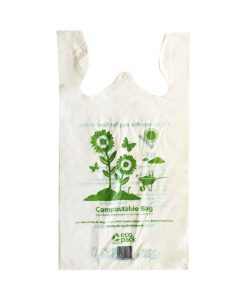Members of the Public Place Recycling Scheme and Soft Plastics Recycling Scheme
Are you considering a change to compostable packaging?
The shift to products which are described as degradable, biodegradable and/or compostable has
increased as companies seek alternatives to plastic. There was considerable interest in this topic
at our recent AGM and business briefing.
In July, the Parliamentary Commissioner for the Environment released an online resource to help
people understand the issues relating to biodegradable and compostable plastics and how to
dispose of them. Please take a look at this:https://www.pce.parliament.nz/our-work/news-insights/environment-commissioner-questions-merit-of-biodegradable-plastics
The report says that people cannot put most products onto their home compost heaps or into
their recycling bins. New Zealand does not yet have a standard for compostable packaging nor
does the current infrastructure take most of these products in the volumes presented which
means they will mostly end up in a landfill.
We reiterate this position. New Zealand has not got a national composting infrastructure for
packaging. Compostable bags and packaging shouldnot be put into kerbside composting bins
(unless local arrangements exist)nor should they be put into the Soft Plastic Recycling Bins.
We need to have a NZ standard which identifies where and how they can be composted as well
as develop the infrastructure to process them. To this end, The Packaging Forum has established
an independent technical working group (Compostable Packaging Standard Adoption Working
Group (CPSA-WG)) comprising composters, manufacturers, waste industry, central and local
government and research institutions to assess existing international standards and to
recommend a NZ standard.
The CPSA-WG will identify whether the NZ composting industry and other stakeholder
requirements can be met by one of the existing international standards such as the well-known
European EN13432 standard or the Australian AS4736 standard. The scope for this work is:
“Any compostable packaging item which is likely to contain food (including dry goods packaging)
or other nutrients beneficial to compost (e.g. horticultural items). This includes film carrier bags
on the understanding they should have a second life as containers for organic waste (e.g. in
kerbside collection). Other in-scope examples could be compostable food insulation, expanded
PLA where it contained food or other nutrients.”
We are talking to Standards New Zealand so that they are kept informed about our industry led
work. The next phase will be to conduct product testing at compost facilities in New Zealand.
We are primarily looking at commercial composting solutions however, home composting is
another challenge entirely with the diversity of home composting systems already available in
some places.
In summary, most compostable packaging needs to be processed in industrial compost facilities
which are maintained at high temperatures to breakdown the packaging. The size, shape and
layering of containers will impact the breakdown process. New Zealand operates a range of
different types of compost facilities and the degree of breakdown varies so every different type
of facility needs to be investigated separately.
If you are considering changing your current brand packaging to degradable, biodegradable and
or compostable packaging, please contact me so I can update you on progress and seek your
involvement in our work programme.
At the AGM many companies have agreed that their packaging be reusable, recyclable or
compostable by 2025. To deliver on the compostability pledge (as with recycling) there needs to
be infrastructure in place in New Zealand or it will not be achieved.
Manager Public Place Recycling Scheme/ Soft Plastics Recycling Scheme

